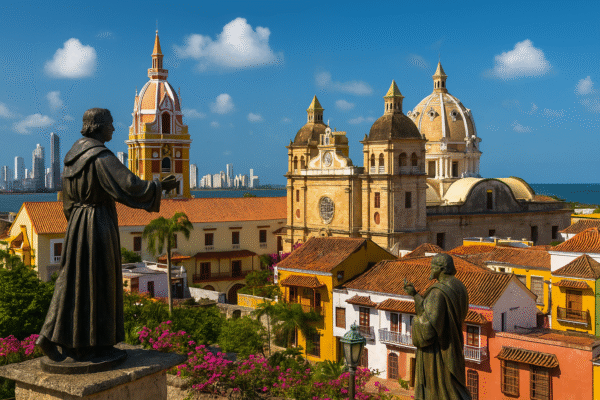Athens, a city known for its ancient history and vibrant cultural scene, is preparing for a major upgrade to its transportation system that will reshape the visitor experience. The Athens Metro expansion, extending to Glyfada and the Stavros Niarchos Foundation Cultural Center (SNFCC), is set to redefine how both locals and international visitors navigate the Greek capital.
By creating direct links to some of the city’s most popular tourist areas, the metro upgrades will reduce reliance on private cars, ease traffic congestion, and enhance the overall convenience of exploring Athens. For travelers, this development means quicker, greener, and more affordable access to both ancient and modern attractions.
Line 2 Extends South to Glyfada
One of the most anticipated projects is the extension of Metro Line 2 from Elliniko to Glyfada, a lively seaside district celebrated for its beaches, nightlife, and shopping.
This area, often referred to as the “Athenian Riviera,” attracts countless visitors each year with its coastal charm and Mediterranean lifestyle. Until now, reaching Glyfada typically required taxis or buses, but the metro extension will make the journey simpler and faster. Tourists can expect seamless connections from central Athens to this southern gem, allowing them to spend less time commuting and more time soaking up the Aegean sun.
The Line 2 extension will also include improvements toward Ilion, opening up more opportunities to explore western Athens. For tourists who wish to experience areas beyond the city center, this will provide access to lesser-known neighborhoods rich in culture and local flavor.
Connecting Culture: Metro Access to the SNFCC
Another highlight of the expansion is the connection of the Stavros Niarchos Foundation Cultural Center (SNFCC) to the Athens Metro. Situated in Kallithea, the SNFCC is a modern architectural masterpiece that houses the Greek National Opera, the National Library of Greece, and expansive public gardens.
By integrating the SNFCC into the metro system, Athens is making cultural tourism more accessible than ever. Visitors will be able to travel directly from the city center to one of Europe’s most celebrated cultural venues. Whether attending an opera performance, exploring exhibitions, or relaxing in the center’s open-air spaces, tourists will now enjoy a smooth and sustainable journey to this landmark.
A Year-Round Tourism Boost
Athens has been steadily developing its reputation as a year-round travel destination, moving beyond its traditional summer tourism season. The metro expansion aligns perfectly with this strategy, enabling visitors to discover both world-famous monuments like the Acropolis and lesser-explored areas throughout the city.
With a reliable public transport system in place, tourists can explore more freely without needing rental cars. This makes visiting Athens more sustainable and convenient, encouraging travelers to enjoy the city during all seasons, from winter cultural festivals to springtime seaside escapes.
Sustainability at the Heart of the Project
The Athens Metro expansion is not just about convenience—it also supports Greece’s commitment to sustainability. By offering efficient and affordable public transportation, the city reduces its reliance on high-emission vehicles such as cars and taxis.
For eco-conscious travelers, this development provides an opportunity to enjoy Athens in a way that aligns with responsible tourism values. Lower carbon emissions, reduced traffic congestion, and a focus on green mobility all contribute to a cleaner urban environment. This is particularly important for a capital that attracts millions of tourists each year and is striving to balance growth with environmental responsibility.
Cultural and Heritage Tourism Reimagined
Athens remains one of the world’s top destinations for cultural and heritage tourism, and the metro expansion will enhance this experience. By linking modern cultural landmarks like the SNFCC with historic treasures such as the Parthenon, the Ancient Agora, and the Temple of Olympian Zeus, tourists will be able to enjoy the full spectrum of Athens’ heritage with ease.
This blending of past and present gives visitors a chance to experience the city as a living museum, where ancient ruins coexist with vibrant modern art and performance spaces. The expanded metro will ensure that both aspects of Athens’ identity are accessible to all.
Economic Benefits and Job Creation
Beyond the cultural and environmental impact, the metro expansion is expected to significantly boost the local tourism economy. Easier access to districts like Glyfada and cultural hubs like the SNFCC will increase tourist foot traffic, encouraging longer stays and greater spending in local businesses such as hotels, restaurants, and shops.
Construction of the new lines will also generate job opportunities in infrastructure and transport, further supporting Athens’ economy. Once operational, the expanded network will continue to create roles in service, tourism, and maintenance, offering long-term benefits to the community.
The Future of Sustainable Travel in Athens
The Athens Metro expansion represents a strategic investment in the city’s future as both a tourist hub and a sustainable urban environment. By combining cultural accessibility with eco-friendly transport, Athens is setting itself apart as a forward-thinking destination for modern travelers.
For visitors, this means that whether you are admiring the treasures of ancient Greece, relaxing on Glyfada’s beaches, or attending a concert at the SNFCC, your journey will be faster, easier, and more environmentally responsible.
Conclusion
The Athens Metro expansion to Glyfada and SNFCC is more than a transportation project—it is a transformative step toward sustainable tourism, cultural enrichment, and economic growth. By linking iconic neighborhoods, cultural landmarks, and coastal attractions, Athens is ensuring its place as one of Europe’s most dynamic and accessible capitals.
As the city prepares for millions of new visitors in the years ahead, the upgraded metro system will play a vital role in delivering a seamless and eco-friendly travel experience. For tourists seeking both ancient wonders and modern cultural experiences, Athens is positioning itself as a city where every journey begins with the metro.


















